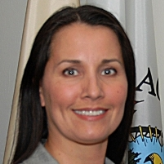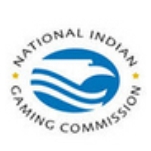NIGC was created at a time when there were a growing number of Indian tribes engaged in gaming activities on Native American lands, but when there were no federal laws to provide clear standards or regulations for the conduct of gaming on those lands. Since 1988, NIGC has administered numerous investigations and audits, in an attempt to ensure the gaming establishments are complying with the standards outlined in the IGRA, as well as with the new policies they created as times and situations changed. However, there have been many complaints, from people directly involved, as well as outside observers, about the job NIGC has done. Among the issues: That there’s been a glaring lack of enforcement; confusion about jurisdiction; a continuing potential for large-scale criminal activity and influence; way too small a staff to handle the huge scope of areas to cover; and questions about how the net revenue from the gaming is actually used.
NIGC is an independent federal regulatory agency that monitors the work of Native American tribe’s gaming regulators, aiming to insure that the Indian Gaming Regulatory Act is adhered to, and to promote economic development and self-sufficiency within the tribes. Solely funded through fees collected from gaming operations under its jurisdiction, NIGC conducts investigations, background checks and audits; undertakes enforcement activities; approves ordinances before gaming can occur; and issues notices of violation and closure orders. It also works to stay on top of new innovations, ideas, and changes in technology, and provides training to the Indian gaming industry and regulators. Headquartered in Washington D.C. and overseeing around 400 casinos, NGIC also has five regional offices, which are located in Phoenix, Arizona; Sacramento, California; St. Paul, Minnesota; Tulsa, Oklahoma; and Portland, Oregon.
(Amador County, California) (pdf)
- Table of Contents
- Overview
- History
- What it Does
- Where Does the Money Go
- Controversies
- Suggested Reforms
- Comments
- Leave a comment
On July 22, 2014, President Barack Obama nominated Jonodev Osceola Chaudhuri to be chairman of the three-member National Indian Gaming Commission. Chaudhuri has been a member of the commission since September 2013 and its acting chairman since October.
Chaudhuri is from Tempe, Arizona. His father, Joyotpaul Chaudhuri, who was born in India, was a college professor, and his late mother, Jean, was from the Muscogee (Creek) Nation. Jean, whose first two languages were Creek and Cherokee, spent her career working for Native American civil rights. Jean and Joy collaborated on a book, A Sacred Path: The Way of the Muscogee Creeks.
Chaudhuri attended Dartmouth, where he earned a B.A. in 1993. He took a few years off before going to law school at Cornell, getting his law degree in 1999. Chaudhuri then returned to Arizona to clerk for two state appellate court judges; Judge James Ackerman from 1999 to 2000 and Noel Fidel from 2000 to 2001.
After his clerkships, Chaudhuri joined the law firm of Snell & Wilmer in Phoenix as an associate. He worked on Indian law, business and finance and commercial litigation. He struck out on his own in 2006, running his law firm until 2010. It was also during this time that Chaudhuri began sitting as a judge in Native American nation courts. He was an appellate judge on the Muscogee (Creek) Nation Supreme Court and the San Manuel Mission Band appellate court and an associate judge for the Puyallup Tribe of Nations. Chaudhuri joined the Maricopa County (Arizona) public defender’s office in 2010 but continued to serve on Indian courts.
In 2012, Chaudhuri was named senior counselor to the assistant secretary for Indian affairs in the Department of the Interior, where he served for a year before moving to the gaming board.
Chaudhuri is the editor of The Yavapai of Fort McDowell: an Outline of their History and Culture (1995) and a contributing author of the anthology Re-creating the Circle: The Renewal of American Indian Self-Determination (2011).
-Steve Straehley
To Learn More:
Obama Nominates Jonodev Chaudhuri Head of Gaming Commission (by Ela Dutt, News India Times)
New NIGC Acting Chair on His Work, IGRA, Bay Mills and More (by Gale Courey Toensing, Indian Country News)

Confirmed on June 22, 2010, as chair of the National Indian Gaming Commission, Tracie Stevens became the first woman to lead the oversight body for the $27 billion Indian gaming industry.
- Latest News
- D.C. Public Schools will Teach all Second-Graders to Ride a Bike
- New Rule in Germany Limits Sales of Sex-Themed E-Books to 10pm to 6am
- What Happened to the 6-Year-Old Tibetan Boy the Chinese Government Kidnapped 20 Years Ago?
- U.S. Ambassador to Turkey Photoshops his Hair Color to Mock Turkish Mayor
- Mystery Artist Calls Attention to Unfixed Potholes by Drawing Penises around Them
NIGC was created at a time when there were a growing number of Indian tribes engaged in gaming activities on Native American lands, but when there were no federal laws to provide clear standards or regulations for the conduct of gaming on those lands. Since 1988, NIGC has administered numerous investigations and audits, in an attempt to ensure the gaming establishments are complying with the standards outlined in the IGRA, as well as with the new policies they created as times and situations changed. However, there have been many complaints, from people directly involved, as well as outside observers, about the job NIGC has done. Among the issues: That there’s been a glaring lack of enforcement; confusion about jurisdiction; a continuing potential for large-scale criminal activity and influence; way too small a staff to handle the huge scope of areas to cover; and questions about how the net revenue from the gaming is actually used.
NIGC is an independent federal regulatory agency that monitors the work of Native American tribe’s gaming regulators, aiming to insure that the Indian Gaming Regulatory Act is adhered to, and to promote economic development and self-sufficiency within the tribes. Solely funded through fees collected from gaming operations under its jurisdiction, NIGC conducts investigations, background checks and audits; undertakes enforcement activities; approves ordinances before gaming can occur; and issues notices of violation and closure orders. It also works to stay on top of new innovations, ideas, and changes in technology, and provides training to the Indian gaming industry and regulators. Headquartered in Washington D.C. and overseeing around 400 casinos, NGIC also has five regional offices, which are located in Phoenix, Arizona; Sacramento, California; St. Paul, Minnesota; Tulsa, Oklahoma; and Portland, Oregon.
(Amador County, California) (pdf)
Comments
On July 22, 2014, President Barack Obama nominated Jonodev Osceola Chaudhuri to be chairman of the three-member National Indian Gaming Commission. Chaudhuri has been a member of the commission since September 2013 and its acting chairman since October.
Chaudhuri is from Tempe, Arizona. His father, Joyotpaul Chaudhuri, who was born in India, was a college professor, and his late mother, Jean, was from the Muscogee (Creek) Nation. Jean, whose first two languages were Creek and Cherokee, spent her career working for Native American civil rights. Jean and Joy collaborated on a book, A Sacred Path: The Way of the Muscogee Creeks.
Chaudhuri attended Dartmouth, where he earned a B.A. in 1993. He took a few years off before going to law school at Cornell, getting his law degree in 1999. Chaudhuri then returned to Arizona to clerk for two state appellate court judges; Judge James Ackerman from 1999 to 2000 and Noel Fidel from 2000 to 2001.
After his clerkships, Chaudhuri joined the law firm of Snell & Wilmer in Phoenix as an associate. He worked on Indian law, business and finance and commercial litigation. He struck out on his own in 2006, running his law firm until 2010. It was also during this time that Chaudhuri began sitting as a judge in Native American nation courts. He was an appellate judge on the Muscogee (Creek) Nation Supreme Court and the San Manuel Mission Band appellate court and an associate judge for the Puyallup Tribe of Nations. Chaudhuri joined the Maricopa County (Arizona) public defender’s office in 2010 but continued to serve on Indian courts.
In 2012, Chaudhuri was named senior counselor to the assistant secretary for Indian affairs in the Department of the Interior, where he served for a year before moving to the gaming board.
Chaudhuri is the editor of The Yavapai of Fort McDowell: an Outline of their History and Culture (1995) and a contributing author of the anthology Re-creating the Circle: The Renewal of American Indian Self-Determination (2011).
-Steve Straehley
To Learn More:
Obama Nominates Jonodev Chaudhuri Head of Gaming Commission (by Ela Dutt, News India Times)
New NIGC Acting Chair on His Work, IGRA, Bay Mills and More (by Gale Courey Toensing, Indian Country News)

Confirmed on June 22, 2010, as chair of the National Indian Gaming Commission, Tracie Stevens became the first woman to lead the oversight body for the $27 billion Indian gaming industry.
- Latest News
- D.C. Public Schools will Teach all Second-Graders to Ride a Bike
- New Rule in Germany Limits Sales of Sex-Themed E-Books to 10pm to 6am
- What Happened to the 6-Year-Old Tibetan Boy the Chinese Government Kidnapped 20 Years Ago?
- U.S. Ambassador to Turkey Photoshops his Hair Color to Mock Turkish Mayor
- Mystery Artist Calls Attention to Unfixed Potholes by Drawing Penises around Them






Comments